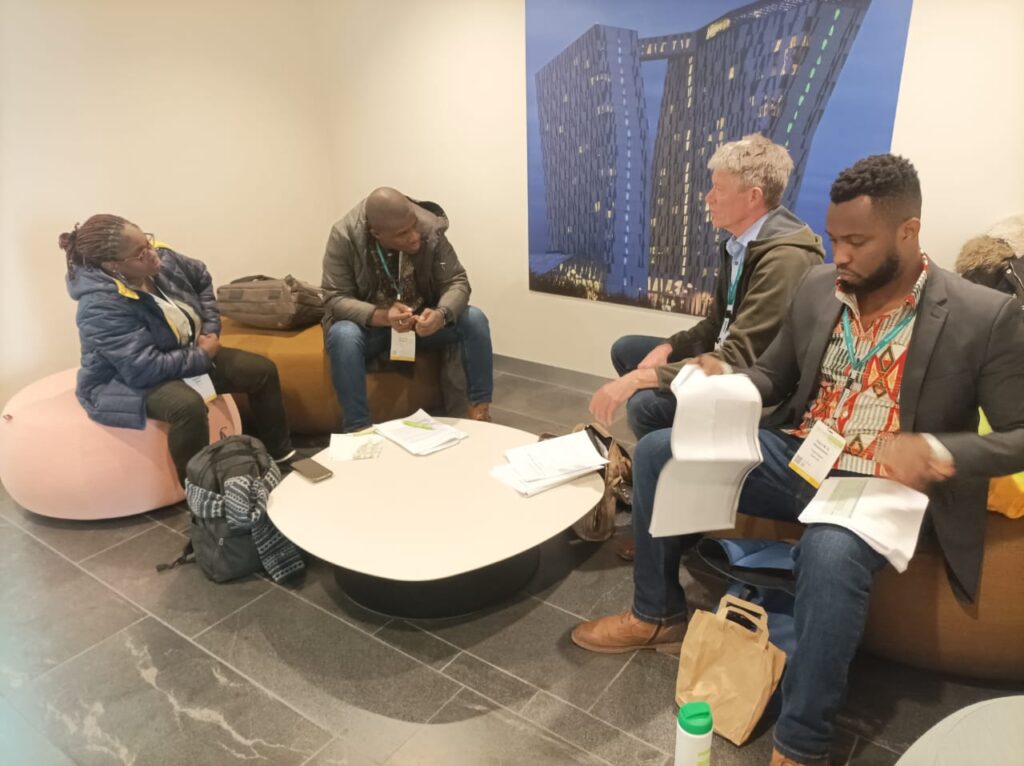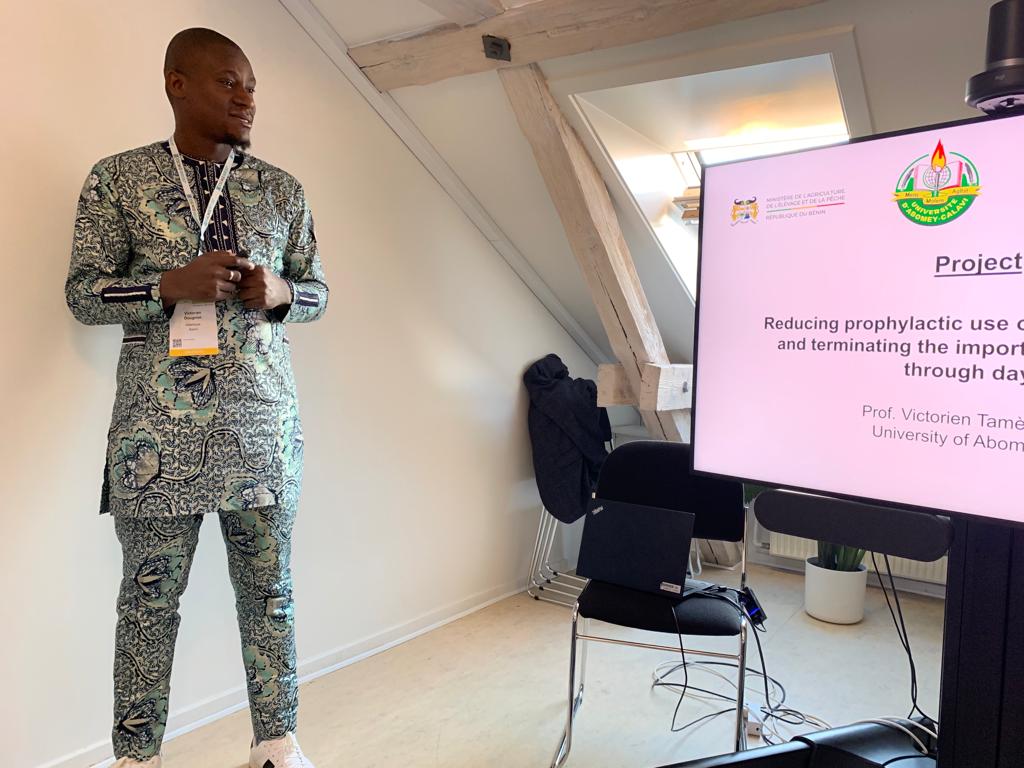Between 15-18 April 2023, more than 14,000 people from all around the world attended the 33rd European Congress of Clinical Microbiology and Infectious Diseases (ECCMID). The hybrid event held online and in Copenhagen, Denmark had an action-packed programme of more than 100 sessions across all disciplines related to Clinical Microbiology, Infectious Diseases, Infection Control and Prevention and Public Health.
Taking place near ICARS’ headquarters, the congress provided a great opportunity for ICARS’ staff and project teams to present, network and exchange ideas with other experts working in the field. In the following interview, Professor Victorien Dougnon, shares his reflections on how attending the congress has positively impacted his work with ICARS and beyond.
Please can you start by introducing yourself and your work with ICARS?
I am the head of the Research Unit in Applied Microbiology and Pharmacology of natural substances at the University of Abomey-Calavi in Benin. Our institution, together with the Ministry of Agriculture, Livestock and Fisheries and ICARS, is working to reduce the import of antimicrobial resistance through day-old chicks and eggs in Benin. The project, which started in mid-February 2023, aims to provide data and a framework for designing and supporting implementation of a microbiological certification system (MicS) for local and imported eggs and day-old chicks, to support the sustainable development of the rapidly growing poultry industry in Benin.

How was your experience at ECCMID 2023?
Five of us involved in the Benin project were honoured to receive a full grant to attend the congress in person, where we gathered valuable insights on the latest research and developments in the field including new diagnostic techniques, treatments, and vaccines for infectious diseases. Our physical presence at the event also gave us the opportunity to network with other researchers and clinicians to exchange knowledge and ideas with our peers. Attending ECCMID gave us the opportunity to:
- Hear from leading researchers and clinicians on developments in the field, and get up to date on the latest trends and advancements (metagenomics, bioinformatics tools and how to apply machine learning to the advancement of infectious diseases) that could inform our research and clinical practice.
- Meet with and exchange knowledge and ideas with other researchers and clinicians from around the world. It was great to be able to discuss our project and its role in reducing AMR, with others working in the same field in different locations.
- Attend interactive workshops to discuss findings and techniques with other participants, with the hope of refining our own practice and improving research quality.
- Reflect on the challenges of tackling infectious diseases in the African region. Meeting with other African participants made evident the unique challenges our region faces regarding limited resources, inadequate healthcare infrastructure, and high disease burden. Sharing experiences and challenges can help promote collaboration between researchers and practitioners across borders.
- Advocate for increased funding and attention for tackling the growing burden of infectious diseases in the African region

Did you get the chance to present your work?
Apart from sharing our work through informal networking at ECCMID, we also had the chance to present our work to researchers, funders and implementation partners attending the ICARS reception. The round of rapid presentations from ICARS’ project teams facilitated cross-country knowledge sharing and catalysed potential collaborations with other teams working on similar topics or with relevant expertise. We were really inspired by the works in Georgia to reduce the use of antibiotic growth promoters (AGPs) on poultry farms. The reception also offered a chance to learn about the other solutions ICARS is implementing and ask questions, provide critique, and share insights that could strengthen our combined work.
Were there any learnings that could support your work in Benin?
Yes, there are several actions we plan to take when we are back in Benin:
Knowledge transfer: While we were lucky to have a group of us from the project attending it is important that we take time to share our learnings with colleagues in Benin to raise the level of expertise.
Network follow-up: After building connections with researchers from institutions operating in other countries, we plan to keep the dialogue open and explore the potential for joint research projects, sharing of resource, and transfer of knowledge.
Application of new skills: As a team of microbiologists, we are keen to apply our new learning to develop and implement better diagnostic techniques, treatments and vaccines for infectious diseases in our country. We learnt more about how developing countries can be more efficient in lab management and we are going to implement it with our local team.

